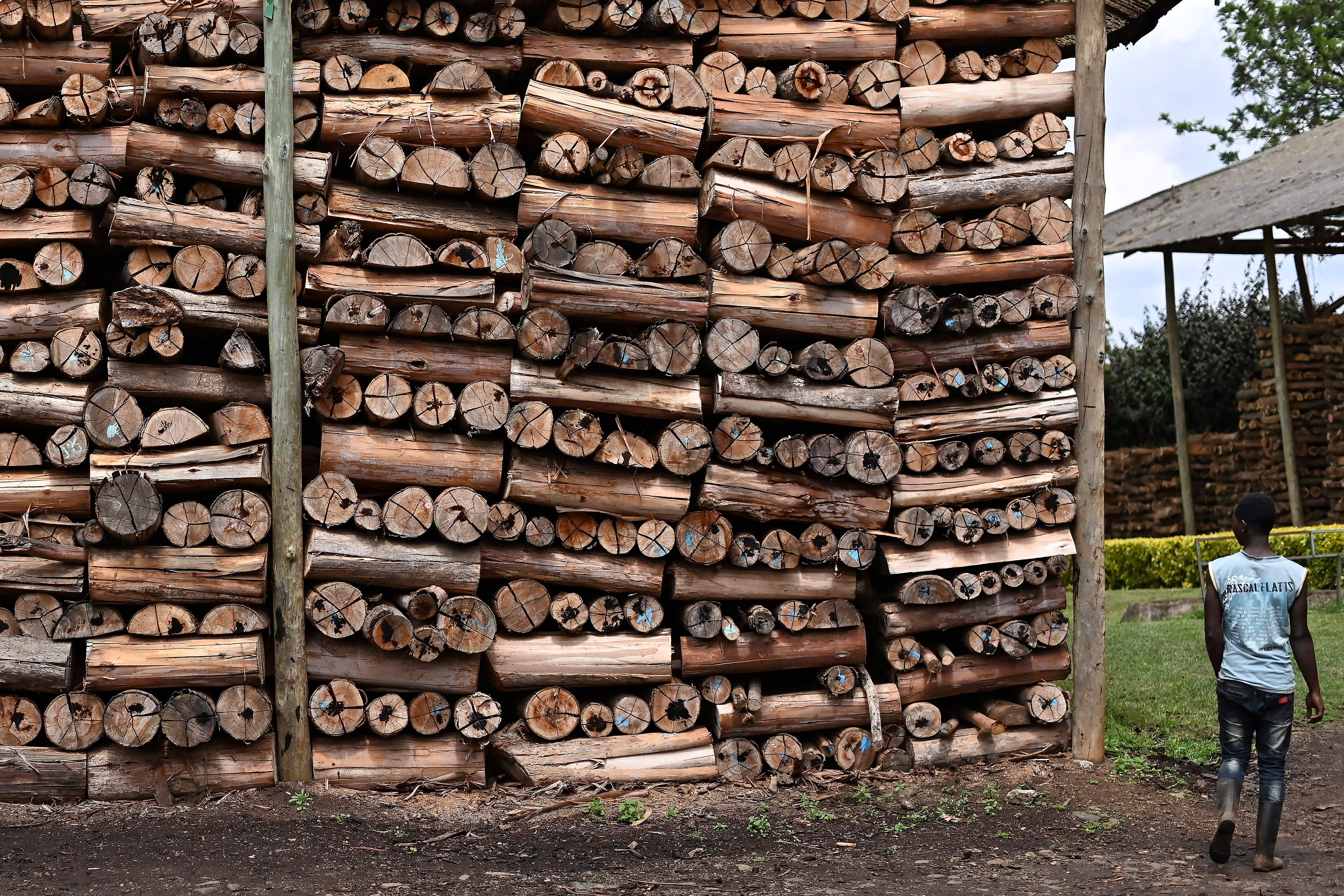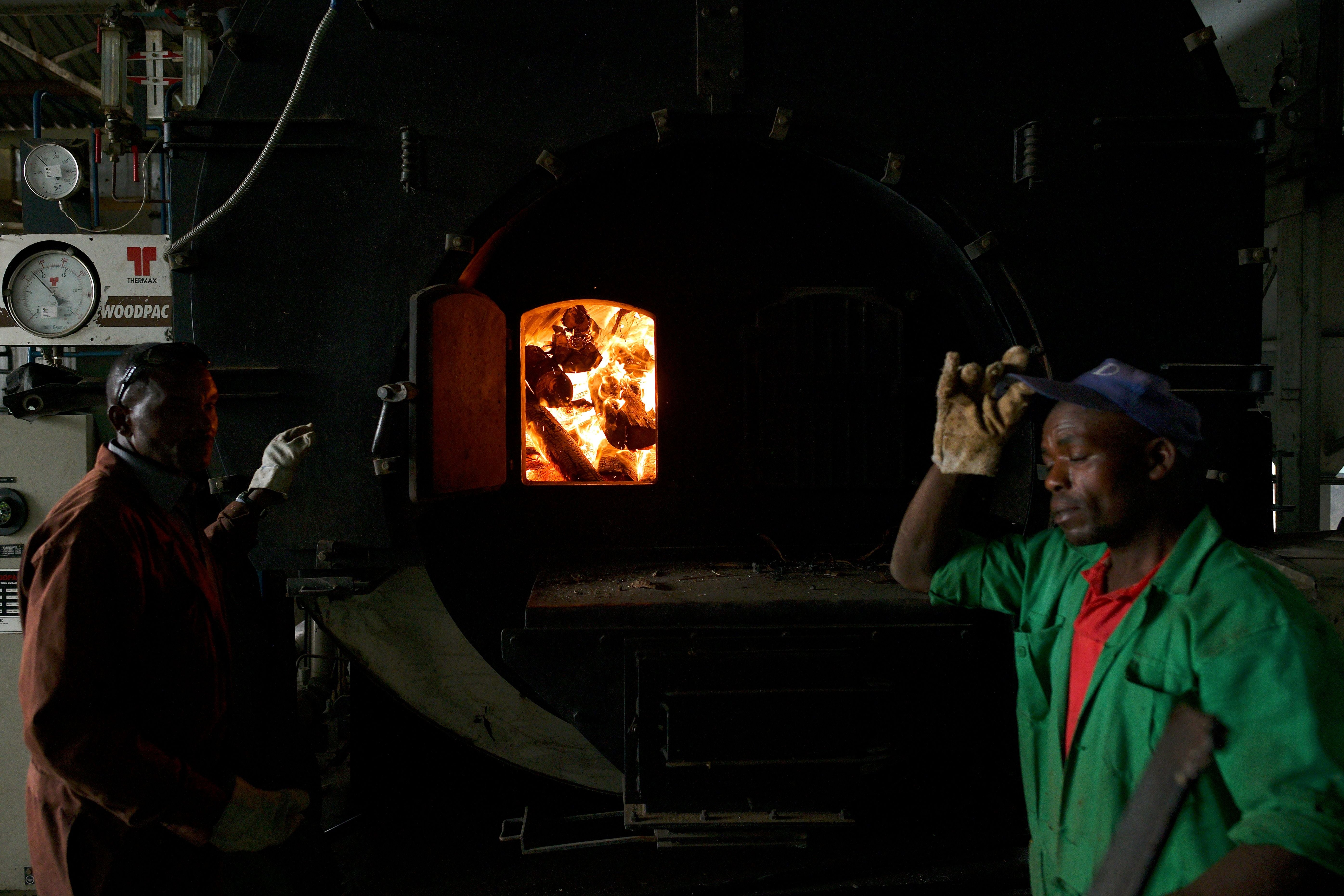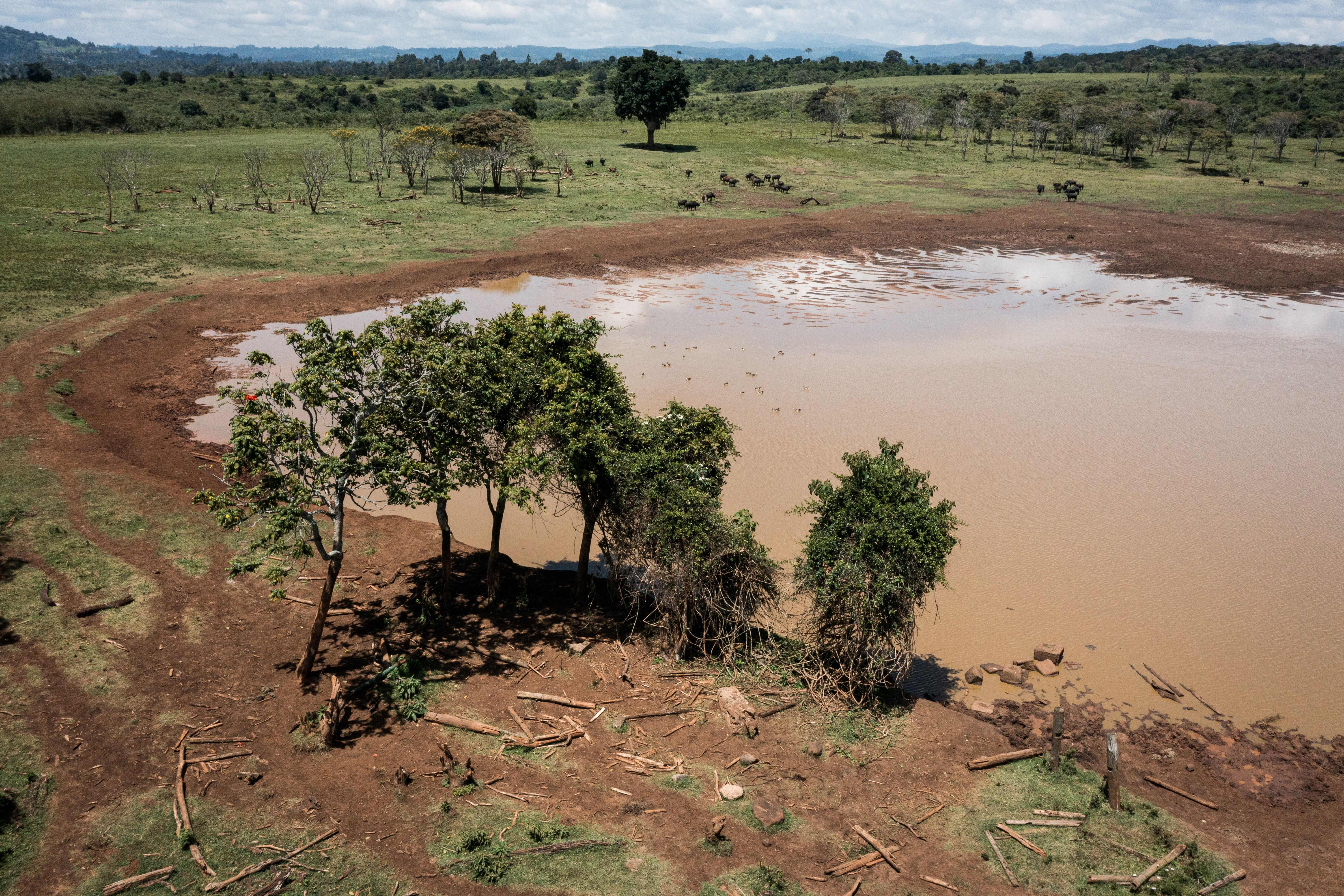Kenyan climate activist Elizabeth Wathuti says Cop27 must deliver for ‘neglected’ Africa
‘It cannot be framed as an African Cop just because it’s coming to Africa,’ Elizabeth Wathuti says
Kenyan climate activist Elizabeth Wathuti told world leaders attending the Cop26 climate summit that her message would only land if they had the grace to “fully listen”.
Six months on, the 26-year-old environmentalist looks back at the Glasgow summit with growing frustration. She feels that it failed to deliver concrete support for those living on the front lines of the climate crisis.
Promises for future action, made in abundance at the summit, offer cold comfort to those on the African continent living with climate-fuelled hunger, flooding and extreme heat, she tells The Independent, pointing to climate-related food insecurity in her own country, Kenya.
“They’re not waiting for climate change impacts to hit in the future,” she says. “It’s happening right now.”

As the dust settles after Glasgow, the next climate summit in Egypt is already looming on the horizon. In six months’ time, world leaders, activists, climate scientists and journalists will descend on the Red Sea resort of Sharm El-Sheikh to attend the event, which is being dubbed ‘the African Cop’.
While it is by no means the first climate summit to be organised on the African continent, many hope it may help to deliver climate justice for countries in the global south, after many were disappointed by the agreements reached in Glasgow.
Ms Wathuti remains sceptical, however. “It cannot be framed as an African Cop just because it’s coming to Africa; that in itself is not enough,” she says. “It has to also make sure that the present needs of Africa – that have always been neglected before – are prioritised in the outcome that we get.”
Now based in Nairobi, Ms Wathuti grew up in one of the most forested regions of Kenya, and developed her passion for nature early.
At the age of 7, she planted a tree at her primary school in Nyeri County, germinating her connection with the natural world.
Later, she says, she remembers approaching a forest near her school and finding a collection of tree stumps where the canopy had been felled.
“I remember I was so frustrated, and I could not understand why anyone would destroy such a beautiful forest,” she says. “For me, it was the very first time I felt angry and frustrated, seeing part of the forest destroyed.”

At secondary school she set up an environmental club that planted trees, as she realised not everyone felt the same way about nature as she did.
Ms Wathuti believes that those who abuse the environment are missing an emotional connection with the natural world. This is something she hopes she can change, at least for future generations, and it has spurred her on to found the Green Generation Initiative. The group focuses on tree-growing to help communities tackle the climate crisis, while addressing the issue of people not having access to sufficient food by growing fruit and nurturing young people to love and respect the natural world around them.
The young activist faces an uphill battle. While Africa is home to close to a fifth of the world’s forests, every year deforestation destroys nearly 3 million hectares of forest on the continent, according to the United Nations.
It is one of the issues on which Ms Wathuti hopes to see progress made at Cop27 – specifically, a concrete plan for how Africa will end deforestation by 2030.
At Cop26, more than 100 national leaders pledged to stop deforestation and begin restoring the world’s forests by the end of the decade, in an agreement that encompasses 85 per cent of the world’s forests. While activists broadly welcomed the pledge at the time, they also warned that action would be needed immediately.
“Giving a timeline is not enough in itself; we need a roadmap,” says Ms Wathuti six months on. “We need [governments] to tell us how they’re planning to get us there by 2030; we need to know what happens to countries that fail to meet the deadline.”
If those commitments are not delivered, it shows that world leaders are “running away from being held accountable”, she adds.
For Ms Wathuti, accountability is key to the success of international conferences such as the Cop summits, and she suggests that one mechanism to ensure accountability could be to make the pledges legally binding. Next week, she is headed to the World Economic Forum in Davos to remind business leaders and decision-makers what is at stake ahead of Cop27.

Her hopes for Egypt also include a concrete roadmap for Africa to transition to renewable energy, and for rich countries to double the money they’ve given to developing countries to help them adapt to climate change – as they were urged to do in Glasgow.
She also wants developing countries on the front line of the climate crisis to be compensated for the “loss and damage” they incur – something that has long a contentious issue on the world stage.
Poorer countries that are particularly vulnerable to climate change argue that they are bearing the brunt of the climate crisis despite having done little to contribute to global heating. Rich countries have in the past strongly opposed the idea, though a dialogue was established at Cop26 to allow formal discussions on the issue to continue.
“What we saw at Cop26 was that the leaders were acknowledging all these gaps – the gap on climate finance, the gap on loss and damage,” she says. “But then no one seemed to be wanting to step up to fill the gaps.”
Asked if she thinks holding Cop27 on the African continent could ultimately make a difference on issues such as loss and damage and adaptation finance, by putting Africa at the front of people’s minds, Ms Wathuti says there is no guarantee.
“If [Africans] are not the ones who are leading, and they’re not being heard, and what they bring to the table is not being taken into account, then it’s not going to make any real difference that it’s coming to Africa,” she says.
Join our commenting forum
Join thought-provoking conversations, follow other Independent readers and see their replies
Comments
Bookmark popover
Removed from bookmarks